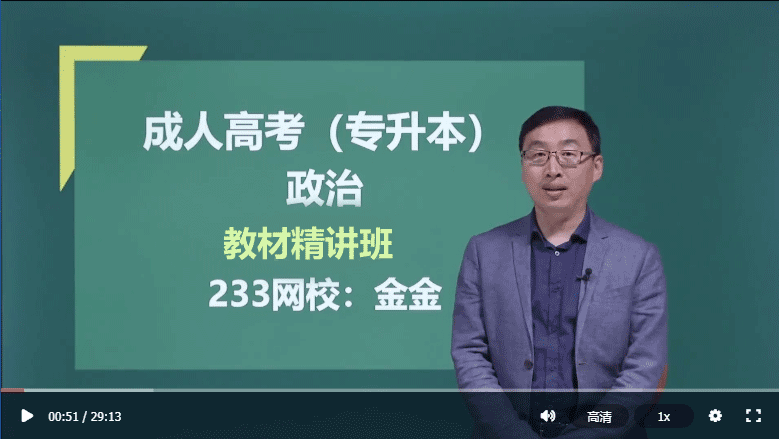цшщЋшЕЗчЙшБшЏхЄфЙ хфЙшЏшЇЃцфК
ууamaze astonish surprise
уущНхЋцтфНПтІтІцхМт чццяМшфИхЎфЛЌщНцЏфИшЌфЛЅфКчЉцфЛфККфНфИЛшЏяМ фЛЅцЌфККфНхЎОшЏяМ фЛЅцЌфККфНфИЛшЏцЖчЈшЂЋхЈхНЂхМу
ууamazeхМКшАтфНПцхМяМ хАцтщДцшПцтцхЙяМ фНЉцтчццяМ цЏцфЙхОхМКчшЏяМ хІяМ
ууWe were amazed at the ingenuity with which they solved their difficulties.
ууфЛфЛЌхЈшЇЃхГхАщОфИцшЁЈчАчцКц ЇфНПцфЛЌцхЙ[фНЉц].
ууastonishшЁЈчЄКтфНПфККхЄЇхфИцтутх фЙц цГфНПфККчИфПЁтяМ фНцВЁцтцхЙтчццяМ хІяМ
ууI was astonished at his rudeness.
ууфЛччВщфНП цхЄЇхфИцу
ууsurpriseшЏцАшОфИшПАфИЄшЏхМБяМ хЊшЁЈчЄКтхКфЙцхЄхАцхМтяМ хІяМ
ууWe were surprised at finding the house empty.
ууцфЛЌцшЎЖхАхчАцПхцЏчЉКчу
ууdeclare announce publish proclaim
уущНхЋтцчЁЎхАхЃАццхЎЃхИчццту
ууdeclare чЛхИИчЈфКцЃхМхКхяМцтцИ цЅяМ цххАяМ х ЌхМшЎЉфККчЅщтяМ хІяМ
ууHe declared his intention to run for office.
ууфЛхЎЃхИфКшЊхЗБхх чЋщчцГцГу
ууannounce цтцфККфЛЌх ГхПццх ДшЖЃчфКцЃхМх ЌхИфКфМтяМ хІяМ
ууannounce a sale
уух ЌхИхфЛЗу
ууpublish цтщшПхЃхЄДхфЙІщЂцЙхМшЎЉх ЌфМщНчЅщяМ фНфИЛшІцЏхш тяМ хІяМ
ууHeтll publish a statement.
ууфЛхАх ЌхИфИщЁЙхЃАцу
ууproclaim чЈфКх Ќх БццЃхМхКхяМ чЙхЋцтщхЄЇчфКфЛЖтяМ чщтхКфИЅхАххЙПхЄЇчОЄфМхЎЃхИтцтфИЅшшЎЄчхАчГцтяМхІяМ
ууproclaim the founding of a republic
уухЎЃхфИфИЊх БххНчцчЋу
ууbe annoyed with sb. for sth.=be annoyed with sb. at sth.
уухЏЙяМцфККяМфИКяМцфКяМшчцА
ууannoy bother irritate
уущНхЋцтфНПцМцтц тфНПчІцМтчццу
ууannoy цчБфКхЙВцАуфИщЁКхЉцхфИфКцчЇхЄчц хЕчштфНПчІцМуццМтяМхІяМ
ууI was annoyed by his bad manners.
ууфЛчц чЄМфНПццМцу
ууbother цфИххАтцАфЙБтутщКЛчІтяМ фНПфККфИшНхЎхЎяМ шфКЇччІцМчхПчу
чИх ГцЈш
- 2017хЙДцфККщЋшщЋшЕЗчЙшБшЏшшЏшО хЏМ:фЛшЏчшЏ04-10
- 2017хЙДцфККщЋшщЋшЕЗчЙшБшЏшшЏххЙДчщЂфНцчВОщцБцЛ04-04
- 2017хЙДцфККщЋшщЋшЕЗчЙшБшЏшшЏххЙДчщЂфНцчВОщхфИ04-03
- 2017хЙДцфККщЋшщЋшЕЗчЙшБшЏшшЏххЙДчщЂфНцчВОщхфК04-02
- 2017хЙДцфККщЋшщЋшЕЗчЙшБшЏшшЏххЙДчщЂфНцчВОщхфИ04-01
| ПЮГЬзЈвЕУћГЦ | НВЪІ | дМл/гХЛнМл | УтЗбЬхбщ | БЈУћ |
|---|---|---|---|---|
| гяЮФ(ИпЦ№Еу)ОЋНВАр | ЕЫО§УФ | ЃЄ150 / ЃЄ150 |  |
БЈУћ |
| гЂгя(ИпЦ№Еу)ОЋНВАр | Monica | ЃЄ150 / ЃЄ150 |  |
БЈУћ |
| Ъ§бЇ(ЮФ)ОЋНВАр | ЭѕЗМ | ЃЄ150 / ЃЄ150 |  |
БЈУћ |
| Ъ§бЇ(Рэ)ОЋНВАр | ТогзжЅ | ЃЄ150 / ЃЄ150 |  |
БЈУћ |
| ДѓбЇгяЮФ(зЈЩ§БО)ОЋНВАр | ХЗбєАиСи | ЃЄ150 / ЃЄ150 |  |
БЈУћ |
| гЂгя(зЈЩ§БО)ОЋНВАр | Monica | ЃЄ150 / ЃЄ150 |  |
БЈУћ |
| ИпЕШЪ§бЇ(вЛ)(зЈЩ§БО)ОЋНВАр | ЭѕЬЮ | ЃЄ150 / ЃЄ150 |  |
БЈУћ |
| ИпЕШЪ§бЇ(Жў)(зЈЩ§БО)ОЋНВАр | ТогзжЅ | ЃЄ150 / ЃЄ150 |  |
БЈУћ |
ИЈЕМПЮГЬ
- ИпЦ№Еу-Ъ§бЇ(ЮФЪЗВЦОРр)

- ЭѕЗМРЯЪІ
 УтЗбЪдЬ§
УтЗбЪдЬ§
- ИпЦ№Еу-гЂгя

- MonicaРЯЪІ
 УтЗбЪдЬ§
УтЗбЪдЬ§
- зЈЩ§БО-ДѓбЇгяЮФ

- ХЗбєАиСиРЯЪІ
 УтЗбЪдЬ§
УтЗбЪдЬ§
АрМЖНщЩм
ЬзВЭАќКЌЃКзЈЩ§БОVIPАр/ИпЦ№ЕуVIPАрЃЈКЌОЋНВ+ецЬтНтЮі+ФЃПМЕуЬт)
ЬзВЭгХЪЦЃК1ЁЂЫјЖЈКЫаФПМЕу
2ЁЂПМЧАЗЂЗХ2ЬзЪдЬт
3ЁЂУтЗбжибЇвЛДЮБЃеЯ
ХфЬзЗўЮёЃК1ЁЂУтЗбЬтПт
2ЁЂПЮГЬНВвх+ПЮМўЯТди+вЦЖЏПЮЬУ







 УтЗбЪдЬ§
УтЗбЪдЬ§ 




